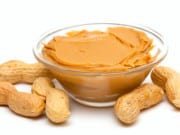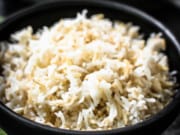Question:
Why is there such a strong connect between Celiac Disease and infertility?
Answer:
There are likely a combination of issues that are tied to gluten intolerance that affect ones overall health and thus affect fertility. The ability to reproduce is largely about the overall health of a species.
Celiac disease is essentially a very clear form of malabsorption of nutrients. This malabsorption of nutrients directly affects the overall health of your body. The poorer your nutrient status, the less likely that you’ll be fertile.
The inflammation that is involved in celiac disease is another factor that may affect fertility. And the potential autoimmune issues that are associated with celiac disease may also affect fertility in ways that we do not understand.
----
Question:
Hi Dr. Wangen! Here we go!
If a Celiac has been gluten free or 13 months (that would be me, lol) and still can't absorb fat, what do you suggest? If I eat anything with over 1-2 grams of fat, I'm in the ladies room and it's not pretty. EEK. Hence, this happens ALL the time and makes me feel terrible. Taking ox bile does help, but it doesn't solve the problem. Eating has been pretty challenging for me with this.
Is this simply a waiting game when it comes to healing? I'm seeing a specialist on Tuesday, but would love to hear your thoughts.
Thanks SO much for doing a Q & A, I think it's wonderful!
Answer:
As you know, people with celiac disease often malabsorb fat. This is due to both the damage to the lining of the small intestine and a decrease in production of enzymes for digesting fat. After removing gluten from your diet you generally heal over time and can then begin digesting these foods again. However, this process may take 1-2 years.
It’s also possible that you have other issues that are affecting your digestion. Those can include gallbladder problems which can directly impact your ability to digest fat, other food allergies, or even imbalances in the delicate ecosystem that exists in your digestive tract. A gastroenterologist can help you assess the first issue, but is unlikely to be very familiar with that latter two.
----
Question:
Thank you, Dr. Wangen, for doing this Q&A. My biggest question is the difference between gluten sensitivity and gluten intolerance. The Univ. of Chicago Celiac Center defines gluten intolerance as a term which encompasses celiac disease, gluten sensitivity and wheat allergy. So, this means that any of the latter 3 issues is considered a form of gluten intolerance.
So, when Celiac disease is excluded by means of normal test results, then a person may have what's called gluten sensitivity, correct? If possible, maybe you could clarify the use of these 2 terms (gluten sensitivity and gluten intolerance) during your Q&A. These and other terms are being used interchangeably a lot lately, which is causing a lot of confusion. Thanks!
Answer:
This is one of my favorite questions and a very important topic. I’m glad that the University of Chicago Celiac Center has adopted a broader definition for gluten intolerance. Unfortunately there are still no clear standards for the use of the words “allergy,” “intolerance” or “sensitivity.”
And you are correct in that they are often used interchangeably.
Gluten sensitivity and non-celiac gluten intolerance are both being used as terms to describe non-celiac reactions to gluten. This is a complex subject and one that I address in my book, “Healthier Without Wheat,” but essentially it means that non-celiac reactions to gluten occur when celiac testing is negative.
This is very common and has nothing to do with the severity of the gluten reaction, which is a myth about gluten intolerance. Celiac disease is a very specific kind of damage that occurs in the small intestine. Without this damage one does not have celiac disease, but they can a gluten intolerance or a gluten sensitivity.
However, it is not accurate to call a wheat allergy a gluten intolerance. Wheat allergies are IgE antibody reactions may or may not involve gluten.
----
Question:
Hello! My question is...Do you know if there is a correlation with Candida and Celiac? My daughter seems to be battling both. I'm thinking that once people find out they are Celiac and then find Gluten Free foods, in the carb category they go nuts and eat too much and they already have a compromised immune system.
Your thoughts?
Thanks!
Answer:
Candida and yeast problems in the digestive tract are surprisingly common, though frequently overlooked. Eating refined carbs is certainly beneficial to the yeast, and that is a potential risk for people who are focusing on all of the processed gluten free foods on the market. And both the ecosystem (good bacteria) in the digestive tract and the immune system are probably not as strong as they could be with regard to protecting you from such microbial invaders in the
digestive tract.
I don’t think that Candida is necessarily correlated with celiac disease. It’s just that Candida is a relatively common problem. But both issues are good reminders that eating gluten free isn’t necessarily the same as having a healthy diet. You still need to focus on eating on lots of vegetables and healthy proteins. Those should be the foundation of your diet.
Article Courtesy: Dr. Stephen Wangen
Image thanks to Ellis Nadler and CartoonStock.com







Let Us Know What You Think